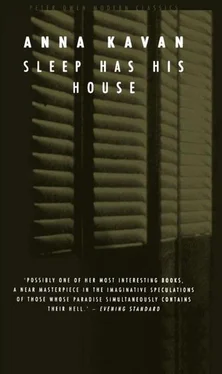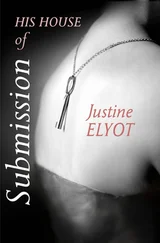Come down, come down, the ballerina calls again and again.
All right, I’ll come, B answers finally, overcoming her hesitation. Wait for me. I’m coming immediately. Please don’t go on without me. I’ll be down in a moment.
The pigeons fly up to her as she hurries away, they flutter about her, filling the air with their wings so that she can hardly see where she is going. A sound something like a groan comes from the gargoyle, which laboriously raises its claw in a gesture of restraint or appeal. B is far out of reach already: she does not see the movement or the stone tear which slowly and painfully extrudes from the gargoyle’s eye and rolls down the length of its pig’s snout.
Soon she’s climbing into the carriage. And how glorious it is to be careering along behind those spirited horses at the side of the ballerina. It’s all wonderful, like a new world; the speed, the excitement, the applause, the hat-raising, the salutes of the passers-by, the privilege of being the envied companion of the subject of such universal admiration. The town, too, takes on a new aspect from this angle. The streets, which B is accustomed to viewing in foreshortened perspective, seem much finer than she had supposed them to be. Even the crooked lanes leading to the poorer quarters promise adventure and mysterious revelations.
The ballerina points out new wonders at every corner. Look, look, she cries, and when she raises her arm the sleeve falls back like a calyx and new marvels reveal themselves. A girl has come to the fountain to fill her bucket with water; but as the carriage rolls by diamonds, emeralds, sapphires spout from the dolphin’s mouth, in a second her pail is full up with precious gems, a whole fortune flashes into the bucket in one beam of light. The ballerina laughs. The sound of her laughter is like bells ringing out from the hilltop. B seems to have heard that sound of bells in another place.
Look, look, says the dancer again. In every window-box of the house they are passing the flowers come out with a rush and fling their bright petals down, showering the carriage and its occupants with scented confetti.
Things like that keep happening continually. But now the horses are racing so fast that B doesn’t have time to catch more than confused glimpses of what’s going on. The speed at which the carriage is travelling makes her quite giddy and she has to cling to the edge of the seat to keep from overbalancing as they swing round the comers. Far, far overhead in the burning blue sky the pigeons are flying, keeping pace with the horses whose wild hooves clatter frantically on the paved street.
Too fast, B calls out, I’m missing everything. Can’t we go a bit slower?
She’s really a little nervous. Supposing one of the horses should slip and fall, or the carriage upset or run over somebody? It seems only too likely to happen.
The dancer just laughs. Probably she didn’t hear what B said in the rush and noise of their progress. She at any rate doesn’t seem in the least anxious. Her yellow hair blows out in the wind as if a fire lighted her laughing face brilliant with power and joy.
Suddenly the astonishing drive is over. Rearing and slithering, the horses are pulled to a standstill. The carriage rocks dangerously; and before it has become steady, the ballerina darts out like a bird, her feet in their green slippers fly up the steps of a magnificent building outside which an equestrian statue threateningly brandishes his great sword.
Where are you going? Wait for me, B shouts, getting out of the carriage as fast as she can. The dancer doesn’t answer or look round. Perhaps she doesn’t realize that B has been left behind. Perhaps she has suddenly forgotten about her.
In desperate haste B starts climbing the steps in pursuit. It’s no good, though. These steps up which the green shoes flew like birds B’s feet can only scale slowly and with infinite labour and pain. Each single step towers in front of her like a wall and she can only drag herself to the top of it by putting out all her strength. Her feet too feel hopelessly heavy and out of control, seeming, as they do sometimes in fevers, to belong to somebody else or to be weighted with heavy stones. Once or twice more she calls out to the ballerina. But already she’s lost hope, she knows there won’t be any response; the dancer has vanished behind the huge mounted knight who looms in between them.
Besides, B is really too exhausted for shouting. It’s as much as she can do to draw breath at all. She stands quite alone now among the hostile faces that have collected around her. The crowd which previously waved and cheered with such enthusiasm has all at once become angry, threatening, morose. These people in their dark clothes watch her silently, like a herd of dangerous beasts, occasionally shifting their positions, or muttering, or exchanging ugly glances between themselves. They do not make any overt accusation, but B understands they resent her presence in that place, she has no business to be there and will be made to pay severely for her trespassing. What the penalty will be she hasn’t the faintest idea. But it’s only necessary to look at those heavy, lowering faces, at the same time stupid and vicious, like the heads of treacherous animals, to know that no brutality is out of the question.
Very slowly the crowd is closing in on her, edging forward almost imperceptibly, but always decreasing the space which is her precarious safeguard. Panic-stricken, B’s eyes search wildly in every direction, without discovering a solitary sign of hope. Above her, sheer as a cliff, the blank façade blots out the sky. Like an implacable and denunciatory finger the long black shadow of the knight’s sword points to her over the heads of the crowd. The carriage has silently disappeared from the street below.
A rumble such as might herald a natural catastrophe, a tidal-wave or an earthquake, comes from the onlookers who are all together murmuring the same fatal indictment, as, with obvious intent now, they draw in their constricting circle. B is like a mouse in a trap. She spins round, first one way and then the other, hardly knowing what she is doing. In one place the ranks of bodies seem less compact, she imagines that it might be possible to force a way through at this point, and dashes towards it. At the same moment she feels herself falling, the whole vast stairway collapses disastrously beneath her. With a great rush of wind the pigeons whirl down and beat all about her with their strong wings, bearing her along between them
into a small room with no windows or doors visible. The walls are scrawled over with dimly seen occult symbols, pentacles, wands, swords, etc. There are shelves of books; and a few phantom-glimmering shapes of vases, or urns. B sits on what might or might not be a narrow bed, reading by the light of four candles in a cross-shaped holder. It’s very dark. The candles shed a flickering, limited ring of light over B and the open book and a part of the dusty stone floor, leaving everything else in shadow deepening to blackness in the comers. Here and there round the walls faint traceries of signs or letters come and go as the four flames waver. Absolute stillness. Hush. At approximately regular intervals B’s hand moves to turn over a page.
After a time a vague stirring, thickening, in one of the dark comers: nothing so definite as movement at first: it’s more a sort of concentration of tension in that comer. From which tenuous chrysalis presently emerges a second B, B’s doppelgänger , materializing out of the shadows; coming nearer the light although very similar, with similar fair curled hair, discernibly older, wearier, more assured, more disillusioned; in fact, of course, A. Who, standing behind B, looking over her shoulder (B is unaware), remains for a while apparently reading what she is reading. Then, moving across the room, gradually departs from the scene in a reversal of the procedure by which she lately arrived.
Читать дальше












